Common Clutch Problems and How to Fix Them
Your vehicle’s clutch plays a critical role in smooth gear shifting and overall driving performance. Over time, wear and tear can lead to various clutch issues that affect drivability, efficiency, and safety. Understanding common clutch problems and how to fix them can help you maintain your vehicle’s performance and avoid costly repairs.
1. Clutch Slipping
Symptoms:
- Loss of power while accelerating
- Engine revs increase without a proportional increase in speed
- Burning smell from the clutch
- Difficulty towing or carrying heavy loads
Causes:
- Worn-out clutch friction material
- Oil or grease contamination on the clutch plate
- Weak pressure plate springs
- Overheating due to excessive riding of the clutch
Fix:
If your clutch is slipping, the first step is to check for contamination or fluid leaks. If the clutch plate is worn, replacing it is the best solution. Avoid riding the clutch pedal while driving, and ensure your clutch system is properly adjusted to prevent further wear.
2. Clutch Dragging
Symptoms:
- Difficulty shifting gears, especially into first or reverse
- Grinding noise when changing gears
- Clutch pedal feels too stiff
Causes:
- Air bubbles or low fluid levels in the hydraulic clutch system
- Misadjusted clutch linkage
- Warped or damaged clutch disc
- Faulty master or slave cylinder
Fix:
Start by checking and refilling the clutch fluid if necessary. If air bubbles are present, bleeding the hydraulic system can restore proper function. If the issue persists, inspect the clutch linkage or replace worn-out components like the slave cylinder.
3. Clutch Pedal Feels Soft or Spongy
Symptoms:
- Clutch pedal feels unusually light or goes to the floor easily
- Difficulty disengaging the clutch
- Fluid leaks under the vehicle
Causes:
- Air in the hydraulic system
- Leaking clutch master or slave cylinder
- Worn-out clutch hydraulic lines
Fix:
Check for leaks in the hydraulic system and replace damaged components if needed. Bleeding the clutch system can also help remove air bubbles and restore proper pedal feel.
4. Clutch Noises (Squeaking or Grinding)
Symptoms:
- Squeaking or chirping sounds when pressing the clutch
- Grinding noise when shifting gears
Causes:
- Worn-out release bearing (throw-out bearing)
- Misaligned clutch components
- Insufficient lubrication on clutch linkage
Fix:
Applying lubrication to the clutch linkage may resolve minor squeaks, but if the noise persists, the release bearing may need replacement. Grinding noises often indicate a worn-out clutch disc, requiring a full clutch replacement.
5. Clutch Sticking or Failing to Disengage
Symptoms:
- Difficulty shifting gears
- Vehicle moves even when the clutch is fully depressed
- Increased resistance in the clutch pedal
Causes:
- Broken or stretched clutch cable
- Faulty slave or master cylinder
- Worn-out clutch fork
Fix:
Inspect the clutch cable for damage and replace it if necessary. If the hydraulic system is at fault, checking and replacing faulty cylinders will usually fix the problem.
6. Burning Smell from the Clutch
Symptoms:
- Strong burning odor after heavy driving
- Clutch feels weak or unresponsive
Causes:
- Excessive clutch slipping
- Overheating due to riding the clutch
- Worn-out friction material
Fix:
Avoid aggressive driving habits and riding the clutch. If the problem persists, replacing the clutch plate is necessary.
Final Thoughts
Regular clutch maintenance can prevent most of these issues. If you notice any of the above symptoms, addressing them early can save you from expensive repairs. At Sterling Clutch & Brake, we offer high-quality clutch replacement parts and expert servicing to keep your vehicle running smoothly.
Frequently Asked Questions (FAQs)
1. How long does a clutch last?
The lifespan of a clutch depends on driving habits, vehicle type, and maintenance. On average, a clutch lasts between 80,000 to 150,000 km.
2. Can I drive with a slipping clutch?
Driving with a slipping clutch is not recommended, as it can lead to further damage and sudden failure. It’s best to have it inspected and replaced as soon as possible.
3. How much does it cost to replace a clutch in New Zealand?
The cost of clutch replacement varies depending on the vehicle make and model. On average, clutch replacement costs range from $600 to $2,000, including labor and parts.
For expert clutch services and high-quality replacement parts, visit Sterling Clutch & Brake today!
Common Clutch Problems and How to Fix Them Read More »
 NZD
NZD
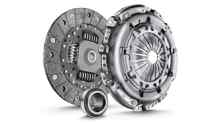
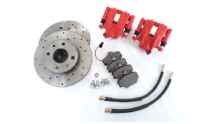
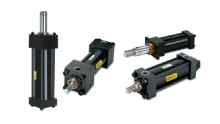
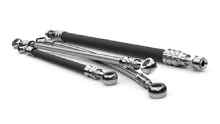
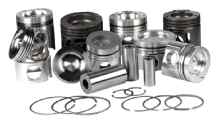
.jpg)
.jpg)
.jpg)
.jpg)

.jpg)
.jpg)


